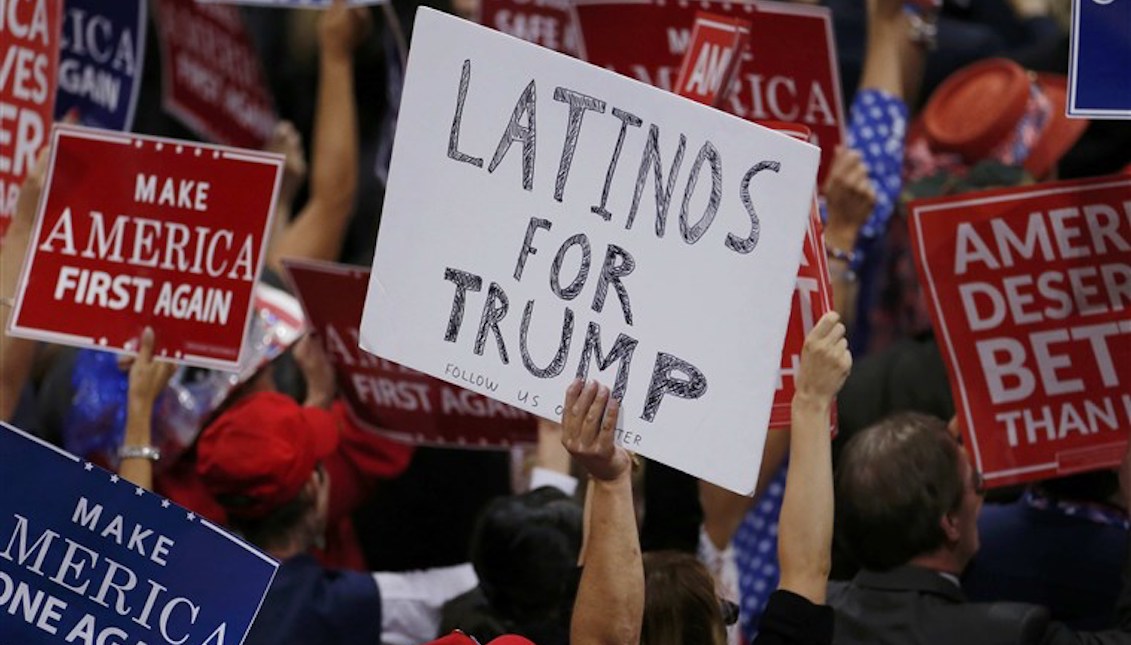
Is there really a Republican Latino?
The relationship between the Republican Party and the Hispanic community in the United States is particularly atypical, but the presidency of Donald Trump…
Being Latino during the Trump era seems to be not only a stigma but a sine qua non to oppose the Republican Party, a historically sound political base and which, to the surprise of many, has endorsed and defended the conflicting decisions of the current White House.
But if we take a look at the statistics in the country, being Latino and Republican is not necessarily a contradiction.
According to data from the Pew Research Center, "the image of the Republican Party among registered Latino voters has changed little since 2002," where 10 percent have said that Republicans care more about Latinos than Democrats. Consequently, during the last years, the support of the Hispanic community for the blue party has increased from 45 to 54 percent.
While registered Latino voters have mostly assured that the Democratic Party responds more positively to their concerns and needs, the party has taken for granted the support of racial minorities and has lost sight of the one-to-one connection with their voters on the street, which has allowed a certain stratum within the Hispanic community to feel less motivated to vote at all.
But analyzing the Hispanic community as a generalized whole is a blunder due to the fact that its ethnic, age and professional diversity are very broad, and those factors directly affect their political positions.
For example, the research center continues, older Hispanics tend to lean more toward the Democratic Party, as do the vast majority of millennials. And women tend to be included in this trend more frequently than men.
However, more than half of Cuban-Americans in Florida supported Donald Trump's candidacy for the presidency, marking an important ideological difference within this demographic universe.
RELATED CONTENT
For columnist Charles Krauthammer, Hispanic "conservatism" should be "natural" because "they’re family-oriented, religious and socially conservative," he wrote to the Washington Post. Ted Cruz and Marco Rubio are a simple example of this: in addition to being Cuban-Americans, men, and whites, they represent a Hispanic wing that corresponds perfectly with the ideological approaches of the GOP, as do their fellow citizens do in Florida.
Although this reality was palpable a couple of years ago, the Trump administration and its anti-immigrant measures have permeated the Hispanic community, causing it to veer in unpredictable directions.
The generational changes and the family dynamics are becoming more adaptable and less rigid, and the emergence of the second generation of Latinos - with academic training and access to the political life of the country - has allowed the questioning of bipartisanship, resulting in a group of young people looking for a solution beyond the traditional blue-red options.
An analysis by High Brow Magazine explains that "Latinos, although they are no longer consistently conservative, are not very ideological," especially in the sense that they are not paying much attention to issues such as marriage equality or the right to abortion. "Instead," the media continues, Latinos "cite unemployment, rising health care costs, and public education as the most important issues they think should be addressed."
These are precisely the fundamental issues in campaigns of progressive candidates who have represented "the third option" in this year's primary elections, which shows that ideology and religion are not the key pieces to make a Latino vote in favor of or against a party, but rather they are looking for the certainty that their basic needs - obviated for years by the political establishment - are addressed from the base of the political campaign.











LEAVE A COMMENT: